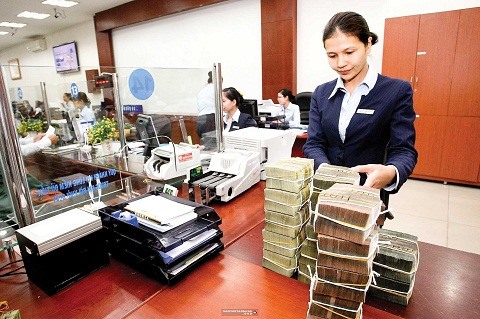 Economy
Economy

Prime Minister Nguyễn Xuân Phúc has asked the State Bank of Việt Nam (SBV) to smooth credit growth over the year and ensure loans will go to right people and businesses.
 |
| Prime Minister Nguyễn Xuân Phúc has asked the State Bank of Việt Nam (SBV) to smooth credit growth over the year and ensure loans will go to right people and businesses. — Photo thoibaotaichinh.vn |
HÀ NỘI — Prime Minister Nguyễn Xuân Phúc has asked the State Bank of Việt Nam (SBV) to smooth credit growth over the year and ensure loans will go to right people and businesses.
He made the request while listing to a number of key 2017 objectives for the SBV during a meeting with leaders of the central bank on Thursday.
He said, “The credit growth target is normally set in the very beginning of each year, but we are normally relaxed in first quarters and then rush to meet the target at the year-end. We face the situation every year.”
The PM highlighted the need to improve proactivity and flexibility in management so that the credit supply will better meet the market’s demand, inflation is under control (below 4 per cent) and macro-economic stabilisation is ensured.
“The Government is assigning you [SBV officials] a great responsibility this year,” he said.
The SBV on Wednesday announced the credit growth target at 18 per cent for the year.
In term of credit structure, Phúc said that credit flow must be directed to sectors such as high-technology, agriculture, small and medium-sized enterprises, tourism, and startups.
Meanwhile, credit supply to real estate and securities sectors and customers whose outstanding loans exceed VNĐ5 trillion (US$222 million) must be tightly supervised.
The SBV must boost competition among banks through market mechanisms and reduce administrative orders to improve the efficiency of loans provision as well as commercial bank transparency.
He asked the central bank to continue tackling obstacles and completing regulations to support the process of restructuring credit institutions and dealing with bad debts to create favourable conditions for enterprises to get loans at low costs.
“As long as bad debts still exist, there is hardly any chance for commercial banks to reduce lending interest rates,” Phúc said.
“Developments of the world economy now is hard to predict while the market often responds quickly to monetary policies, thus the central bank needs to enhance the effectiveness of forecasting activities and prepare well for upcoming events,” Phúc said.
Discussing “black credit” service in rural and remote areas, Phúc attributed its spread to the unbalance of banking service access.
“Many families have gotten into miserable situations after seeking loans with high interest rates from unlicensed businesses, thus raising people’s awareness of credit and finance is a pressing issue,” he said.
He asked SBV branches in localities and local People’s Committees to pay attention to address the problems.
Phúc required the SBV to consolidate the trust of the public as all banking operations from depositing to lending are upheld by the trust.
To promote confidence, the central bank must more effectively fight and prevent corruption, tax evasion and money laundering.
It also needs to encourage commercial banks to reform administration procedures, apply technology to develop modern banking services safely and effectively, and strengthen the network security to avoid customers from suddenly losing money in their accounts, Phúc stressed. — VNS




